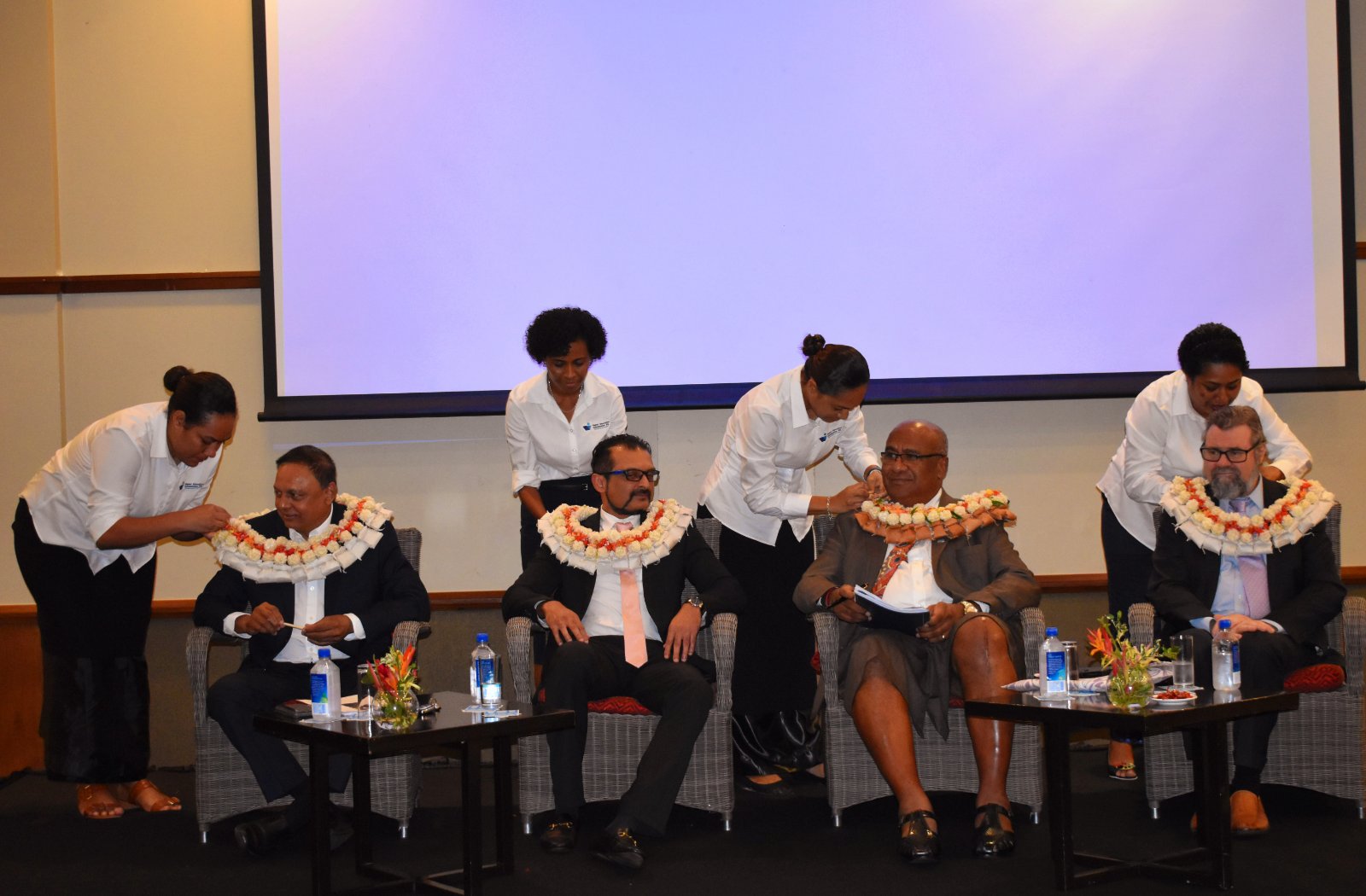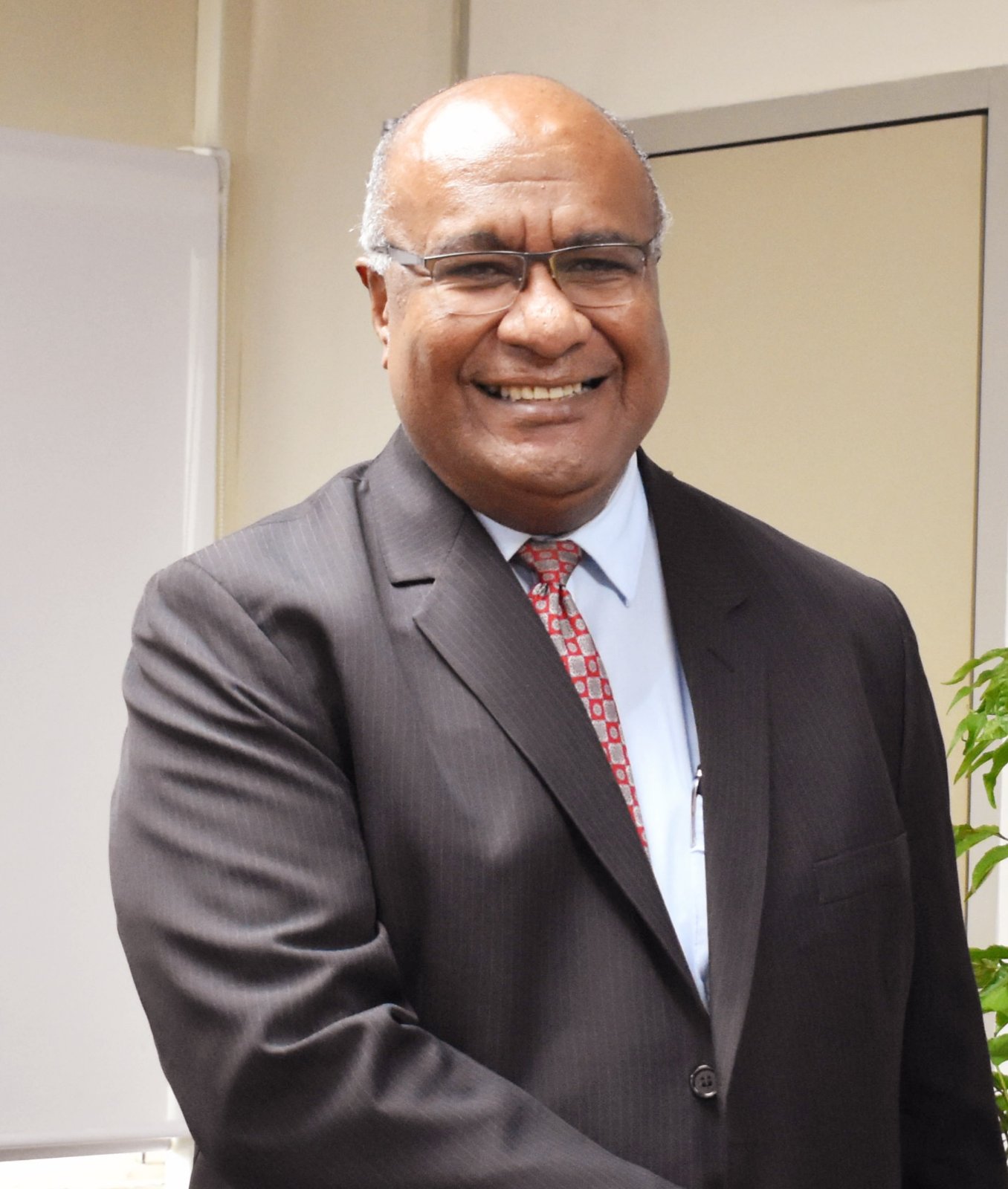Distinguished members of the Diplomatic Corps,
Representatives of the Education Fraternity,
Ladies and Gentlemen,
Bula Vinaka and a good morning to you all.
Today, I wish to address a critical issue that affects not only Fiji but the entire World: ‘climate change’ and its implications on the small and medium-sized enterprise (SME) sector and food security.
Ladies and Gentlemen,
Enhancing the small and medium-sized enterprise (SME) policy matrix for climate change mitigation, specifically for food securing involves engaging stakeholders to collaboratively identify challenges, opportunities and solutions – so I thank you all for being here today to positively contribute to this accomplishment.
Addressing the ills of climate change requires global cooperation, policy changes and sustainable development — because the Pacific more than anywhere in the World is witnessing firsthand the consequences of a changing climate that threaten our environment, economies and the livelihood of our people — this really is a matter of survival!
Ladies and Gentlemen,
MSMEs play a crucial role in economies worldwide. In Fiji, MSMEs have made significant contributions to economic growth, driving innovation and ensuring sustainable livelihoods for thousands of families. However, this sector is vulnerable to external threats and challenges beyond our ability – one of them being climate change.
The impact of climate change poses unique challenges for these businesses. Rising sea levels, extreme weather events, and changing rainfall patterns lead to disruptions in production, transportation, and supply chains.
Ladies and Gentlemen,
These MSMEs already have limited resources and capacity, often finding it challenging to adapt and recover from such setbacks. An example (albeit not linked to climate change) was the COVID-19 pandemic which caused the closure of multiple businesses across Fiji. Like other economies, Fiji lived through the Pandemic, and now we are recovering.
Undoubtedly, one of the most affected areas due to climate change is agriculture and by extension food security. Fiji heavily relies on agriculture for sustenance and income generation. And, climate change has brought about irregular and unpredictable weather conditions, adversely affecting crop yields and livestock production. Droughts, floods, and more frequent tropical cyclones make it difficult for farmers and fisherfolk to plan their activities and maintain stable incomes.
Furthermore, the implications of climate change on food security extend beyond the agricultural sector. The rising temperatures and changing ocean conditions have resulted in the loss of marine biodiversity, reducing fish stocks impacting the coastal communities that depend on fishing as a source of income and sustenance.
Ladies and Gentlemen,
We cannot ignore the fact that these challenges disproportionately affect vulnerable communities in Fiji. Small island nations like ours face higher risks due to our geographical locations, limited land availability, and reliance on natural resources. As we bear witness to the consequences of climate change, it becomes evident that our actions must be swift and unified to protect our MSMEs and ensure food security for our people.
It is imperative that we strengthen the resilience of our MSME sector and enhance food security by implementing a multi-faceted approach by:
- Promoting Climate-Resilient Practices: Encouraging SMEs in agriculture and other sectors to adopt climate-smart techniques that will mitigate the impact of climate change on their operations. This includes promoting drought-resistant crops, water-efficient irrigation systems, and sustainable fishing practices.
- Access to Finance and Insurance: Providing easier access to financial resources and insurance products tailored for climate risks will enable MSMEs to recover faster after extreme weather events and adapt to changing conditions. A good example of this is the Fiji Parametric insurance package that we have for farmers.
- Innovation and Technology: Embracing digital technologies can enhance productivity, aid in climate mitigation and adaptation, and reduce the carbon footprint of businesses. Supporting research and development in climate-resilient technologies coupled with accurate datasets will be crucial for long-term sustainability.
- Public-Private Partnerships: Encouraging collaborations between the government, private sector, and NGOs can foster collective efforts to address climate change challenges effectively. For instance, the Fiji Development Bank just recently launched their new loan product for Electric Vehicles (EVs) with funding of up to $100,000.
- Capacity Building and Education: Equipping MSMEs with the knowledge and skills needed to adapt to climate change will empower them to make informed decisions and implement appropriate strategies. We have noted that a few business trainings such as Fiji Enterprise Engine offer “Greening your Business”. I am sure GGGI is also working in this space through their programmes as well. We also have the National Education Summit coming up which would be another platform to advocate for this content.
- Sustainable Land and Ocean Management: Implementing measures to protect and restore ecosystems like mangroves and coral reefs can provide natural barriers against climate impacts while preserving marine biodiversity.
- Advocacy and Policy Support: Raising awareness about the implications of climate change on SMEs and food security is crucial. Engaging in dialogues with policymakers to develop and enforce climate-friendly policies backed by progressive law will create an enabling environment for businesses to adapt and thrive.
Ladies and Gentlemen,
The implications of climate change on the MSME sector and food security in Fiji demand urgent attention and comprehensive action. As a nation, we must unite to protect our businesses, safeguard our environment, and ensure food security for the present and the generations to come.
I look forward to the findings of the report jointly completed by the Monash University and Fiji National University that will be presented today and hope that the information acquired from this document can help guide the Government towards a more climate resilient future.
I was fortunate enough to get a sneak peak of the SME Policy Matrix and am pleased to see that most of the actions have already been undertaken or are in the process of being completed. I see a lot of synergies with the work that we do at the Ministry and the policy matrix but we just need to connect the dots a bit better to action the plans.
I would also like to take this opportunity to thank the Department of Foreign Affairs and Trade (DFAT) for financing this report.
In closing, I would like to state that only by taking bold and proactive steps, can we build a sustainable and resilient future that withstands the challenges of a changing climate. Let us embark on this journey together for the prosperity of our nation and the well-being of our people.
Thank you and Vinaka Vakalevu.



